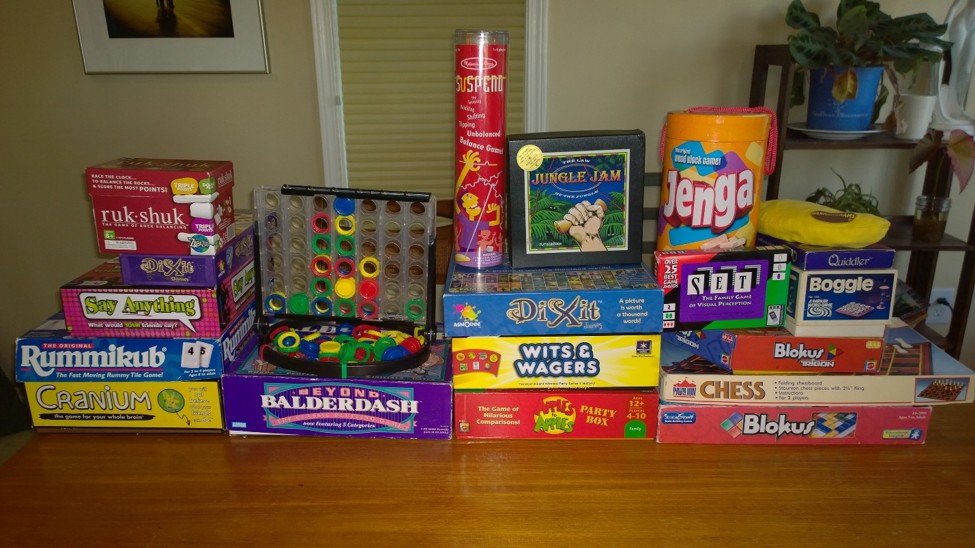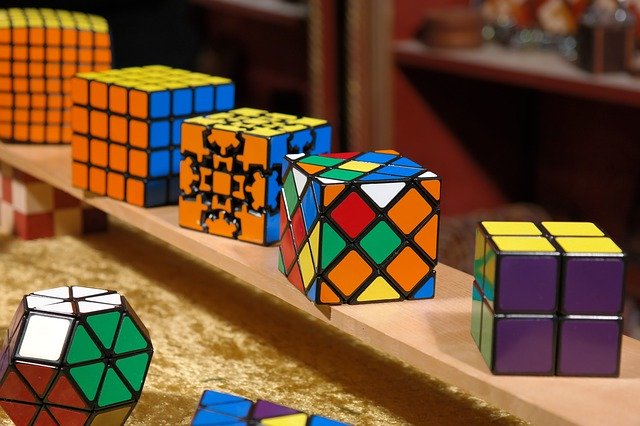
You probably know the importance of cross-training. In athletics, cross-training means doing a wide variety of physical exercises, including those outside of your typical sports.
My three sports are skiing, rock climbing, and hiking. And I could get in shape for those sports by just doing those three activities. But I’ll be better off in a number of ways if I cross-train, so I also do a lot of other things that support my overall physical fitness. I swim, do leg exercises, lift weights, do ab exercises, bike, go for walks, dance, do yoga, and stretch. This variety keeps my muscles well balanced, protects me from injury, and makes me healthier.
Now, your body is important, but it’s not your #1 asset. That, of course, is your brain. And since the brain is like a bunch of muscles, it’s also critically important to cross-train your mind.
Want to become smarter?
Want to become more creative?
Want to ward off Alzheimer’s and other forms of dementia?
Then it’s time to start cross-training your brain.
Here are three principles of mental cross-training:
#1: Seek out variety.
It’s all-too-common for people to focus their mental efforts on a narrow range of activities. If you’re an engineer, for instance, it’s understandable to spend almost all of your mental energy on challenges within your chosen domain. But this is the cognitive equivalent of being a rock climber who only rock climbs. You’ll develop a strong set of mental muscles for engineering, but other important areas of your mind will be weak.
This is why schools make students take all the subjects. It’s not because lit majors need algebra or because engineers need Shakespeare; it’s because cross-training your brain makes you smarter. Unfortunately, when we graduate, we go into specialized careers and stop learning things outside of our field.
But it doesn’t have to be this way. We can, as adults, choose to practice relentless learning of a wide variety of subjects. There are loads of free educational opportunities online, ranging from YouTube channels to university courses.
And that learning doesn’t have to academic. You could take an improv class or dance lessons. You could learn new sports or learn to draw. You could pick up an instrument or take a public speaking class. You could try a new recipe every week. See the resources page for more ideas.
Now, learning isn’t the only way to find new challenges for your brain. You can read, both fiction and nonfiction. You can write blogs, essays, stories, or poems. You can build things, fix things, and make things. You can do puzzles of all sorts. And don’t just do Sudoku or crosswords – do a wide variety of puzzles. Or, my favorite, you can play games.
We live in a golden age of games, and the sheer variety now available means that there are fun ways to train up almost any cognitive skill. Playing the same game over and over again doesn’t give your brain the cross-training it needs. You have to mix it up, learn new games on a regular basis, and play a variety of game types. This helps cultivate mental flexibility.
If you’re looking to start a game collection or add to your current collection, here is a selection of games I love that covers a wide range of playing-styles and thinking-styles. All are easy-to-learn, entry-level games with a high replay value.
A classic entry-level strategy game. Collect resources, build an engine, and get points.
P.S.: If you like Splendor and want to step it up a notch, get Gizmos.
Compete for territory-control using colored shapes. It’s a spatial-reasoning workout for your brain. (This version of Blokus is much more fun than the original game.)
Collect all the beautiful, unique birds of North America and manage your limited number of turns to earn points in a variety of ways.
A cooperative game with a great theme that serves as an excellent introduction to deck-building games (of which Dominion is the best).
Playing as fantasy races with magical powers, you battle for control of the map. This trains you to predict what your opponents will do.
A classic worker-placement game. Use your executive function to plan ahead, collect resources, and complete objectives.
The Russian-nesting-doll-style pieces combine 4×4 tic-tac-toe with memory to create a quick to play but very challenging strategy game for two players.
A social game of art interpretation. To succeed, you have to be able to give and understand subtle clues and think metaphorically.
Basically an improv game in a box. Invent products and make sales pitches. Flex your creativity muscles and laugh your ass off!
Like Scrabble, but much faster and more flexible. Train up your word skills and working memory.
SET: The Family Game of Visual Perception
A fast-paced game of pattern recognition. This trains your brain to quickly hunt for several different types of visual patterns.
Visit Ngaej.com to see many challenging ways to play this classic dexterity game.
Now, let’s get back to our three principles of good brain training.
#2: If it’s easy, it’s not helping.
A cross-fit gym isn’t stocked with Styrofoam weights, and your mental gym shouldn’t be either. Cognitive cross-training should be challenging.
If you’re going down the game route, find increasingly complicated games or play with tougher opponents. If you like puzzles, don’t just do easy ones – challenge yourself with harder and harder puzzles. If you’re studying a foreign language, keep progressing towards fluency. Make yourself speak the language. Read books in that language of increasing difficulty.
Want to learn a basic Rubik’s cube? Great! It’ll be hard, but that’s the point. And when you master that one, find a harder one, and then a harder one, and so on.

When you hit the end of the line on Rubik’s cubes, find a new kind of puzzle.
You can also choose to do things the hard way. I don’t look at the picture on the box when I do a jigsaw puzzle. If I’m playing table-tennis against a weak opponent, I’ll play left-handed to make it harder. On easy ski runs, I’ll sometimes ski backward or use just one ski. The last two might seem like athletic challenges, but they’re mostly mental ones.
If you’re looking for a mental workout and not sure where to start, math is a great arena to play in because there’s a well-laid-out progression of difficulty. Hop on Khan Academy and start working your way through. (P.S.: If you’re a parent, this is great modeling for your kids.)
Or consider taking up mindfulness meditation. It trains your focus muscle, your self-awareness, and your capacity for free will, among other benefits. But a lot of people give up on meditation because they struggle to stay focused on their breathing, not understanding that the source of the benefits is the struggle. Meditation is supposed to be hard. If it were easy, it wouldn’t be helpful.
When you’re faced with something that’s difficult to do, you could get upset. Or you could think of it as cross-training and say to yourself, It’s all good mental training. Sometimes we go out of our way to find challenges, and sometimes the challenges find us. Either way, difficult tasks force your brain to adapt, rewire, and grow. Struggle makes you stronger.
#3: Training + Recovery = Strength
Cross-training is good, but without adequate recovery time, you’re likely to get injured. In the world of cognitive cross-training, an “injury” could range from snapping at a coworker to a full-blown mental breakdown. Sleep, time in nature, physical exercise, and real downtime are critical. Make sure you unplug and unwind often enough to let your mind recover.
Lastly, cross-training takes fuel, so feed your brain good food, both literally, with brain food, and metaphorically, with daily wisdom.
The world is a mind-gym, and lifetime membership is free. Have fun training!












